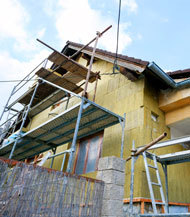 You’ve just toured the home of your dreams and are ready to make an offer. You may not be aware that there may be restrictions that dictate what can and cannot be done to or on the property.
You’ve just toured the home of your dreams and are ready to make an offer. You may not be aware that there may be restrictions that dictate what can and cannot be done to or on the property.
A restrictive covenant—a type of deed restriction—regulates a group of new and existing homes or building lots. Developers use them to preserve a development or subdivision as a model community and control its use and appearance. Buyers agree to the sometimes-rigid restrictions in order to maintain the aesthetic standard set by the developer and to safeguard the value of their homes.
Restrictive covenants should not be confused with local zoning and government regulations. Some covenants and zoning regulations overlap. For example, either can limit the height of a building. Restrictive covenants tend to exert greater control over lifestyle. In addition to standard clauses, which may stipulate a home’s minimum size, height, architectural style, and color schemes, covenants often ban practices that could be regarded as aesthetically objectionable—such as RV, boat or non-operative vehicle parking. They may also regulate grass height, window treatments, holiday decorations, walls, fences, hedges and pets.
While most homeowners enjoy the quality of life resulting from restrictive covenants, some may limit the life you planned. Before committing yourself to a property, be certain you can live with all the restrictions.



